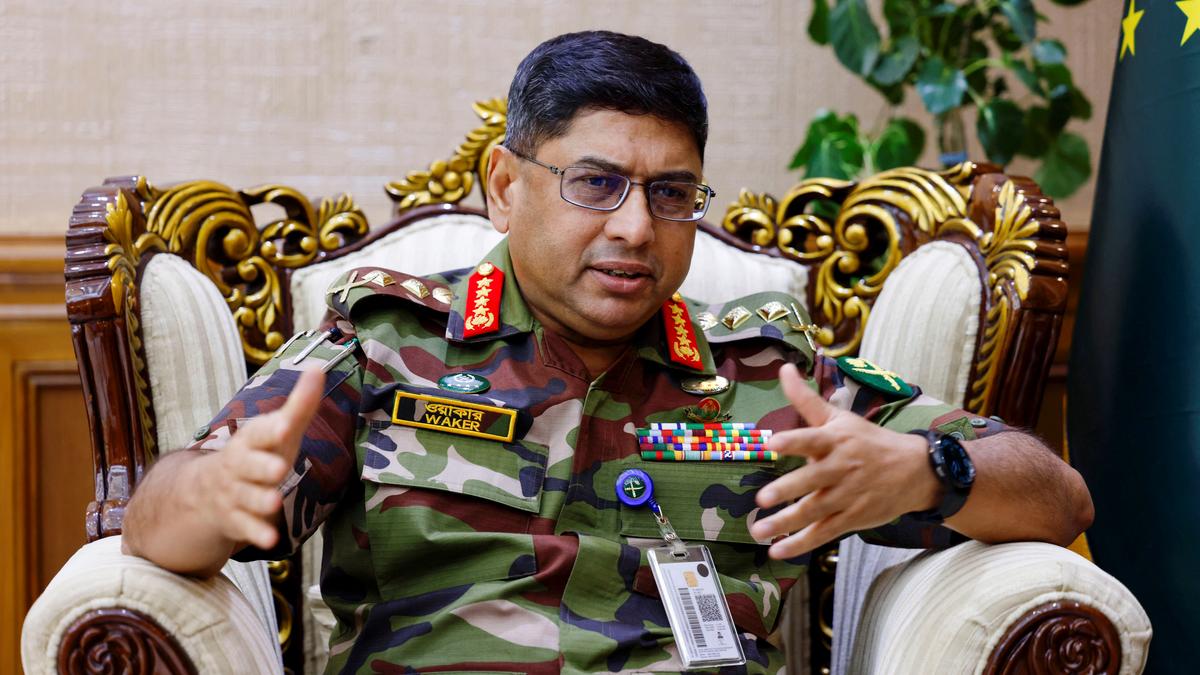Bangladesh: A Nation on the Brink? The Urgent Need for Reconciliation and Stability
The recent interview with Bangladesh Army chief General Waker-uz-Zaman has sent shockwaves throughout the nation. His candid assessment of the country's precarious political situation, coupled with warnings about potential conflicts and the urgent need for reconciliation, paints a picture far from the idyllic image many outsiders may hold. But what exactly is the reality behind the headlines, and how can this crisis be averted?
The Unstable Landscape: Policing Failures and Political Tensions
General Waker-uz-Zaman's interview highlights deep concerns about the failures of the interim administration's policing capabilities. The absence of effective law enforcement has led to a surge in mob justice, threatening the very fabric of society. The recent near-showdown between student activists and the interim government, over calls to rewrite the constitution, demonstrates the high level of political tension. These conflicts raise a critical question: Is Bangladesh at risk of further instability?
Navigating the Complex Relationship with India
The General's comments also shed light on Bangladesh's complex relationship with its powerful neighbor, India. While acknowledging the interdependence between the two nations—from security cooperation to economic ties—he underscores the need for mutual respect and understanding of each other's strategic interests. Addressing border killings and ensuring a fair share of water resources are issues where cooperation is paramount, highlighting the challenges in maintaining positive relations between the countries and demonstrating why conflict resolution between the neighbors is vital to Bangladesh’s internal stability.
The Role of the Military: A Necessary Intervention?
The military's increased role in maintaining order following the downfall of Sheikh Hasina's government is another pivotal element. The interim administration has recently granted them magisterial powers. The decision to use them carefully emphasizes that the restoration of fully functioning institutions rests on the establishment of a politically empowered government. This underscores that a long-term solution requires more than just military intervention and also includes re-establishing a civilian government.
Restoring Policing Capabilities: An Urgent Priority
The General also voiced considerable concern over the breakdown of the police force and stressed the need for it to regain operational effectiveness as a priority. The army's temporary support, although effective, isn't a sustainable solution for maintaining order and public safety and doesn't represent a solution for Bangladesh’s problems long-term.
The Path Forward: Building Consensus and National Unity
General Waker-uz-Zaman's statements underscore the necessity of forging a national consensus—a crucial step in stabilizing Bangladesh's turbulent political climate. He advocates creating an environment conducive to reconciliation and understanding among the diverse stakeholders that make up Bangladesh's society. A renewed focus on inclusivity, the strengthening of political processes, and a robust discussion between all parties involved are key components that cannot be excluded from a sustainable solution to the problems that plague Bangladesh today. The nation’s ability to bring its varied groups together to discuss issues collaboratively is key to the establishment of its long-term political stability. This approach is essential to rebuilding national unity and ensuring peaceful co-existence between its diverse communities.
Promoting Sustainable Development: A Key Ingredient for National Peace
It should also be recognized that economic factors play a significant role in creating stability in the nation. A functioning, efficient and equitable economy and proper economic policies would assist in lessening the severity of political tensions and lead to increased levels of prosperity for all the citizens of Bangladesh. This can be a major factor that greatly reduces conflicts and fosters national stability.
Take Away Points
- Bangladesh faces significant challenges in terms of political stability, security, and law enforcement. This fragility poses risks to both the well-being of the people and the country’s future development.
- The relationship between Bangladesh and India is characterized by interdependence, necessitating careful cooperation between both countries.
- Restoration of functional institutions necessitates establishing a strong civilian government, rather than the continuation of military presence.
- Reconciliation and national unity are crucial elements to resolving political conflicts and securing stability.




